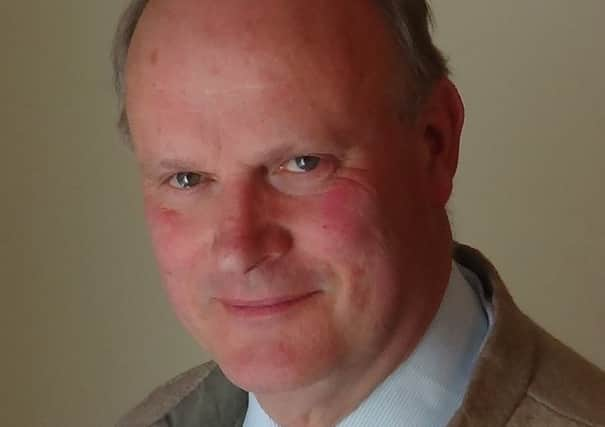Roddy Gow: Anniversaries link us to growing might of Asia


This year is the 70th anniversary of three very significant events. After the Second World War, Europe was economically on its knees and Germany especially needed to be rebuilt.
The US-led Marshall Plan was launched in 1947 and the reconstruction of the UK, France and Germany was the result, laying the foundation for recovery.
Advertisement
Hide AdAdvertisement
Hide AdIn that same year, economic and political pressure on the United Kingdom to speed the dismantling of its pre-war Empire saw the granting of independence to India and the creation of the separate state of Pakistan. Finally, in the arts, the now world-famous Edinburgh International Festival started, when eight theatre companies came together to create the first festival of its kind to celebrate and encourage creativity, as an antidote to the grim years of war.
In today’s challenging world, I would suggest that there are some lessons to be drawn from these three septuagenarians.
The Marshall Plan was about reviving Europe, creating new infrastructure to replace what had been destroyed. The initiative is named after Secretary of State George Marshall, who also served as the United States Army Chief of Staff during the Second World War.
Marshall spoke of an urgent need to help the European recovery in his address at Harvard University in June 1947, resulting in the rolling out of the plan the following summer. The purpose of the Marshall Plan was to aid in the economic recovery of nations after the war – as well as to antagonise the Soviet Union.
To combat the effects of the Marshall Plan, the USSR developed its own economic plan for the Eastern Bloc, known as the Molotov Plan which was not as effective. There may be parallels with China’s One Belt, One Road strategy to fund the infrastructure needed to create a new Silk Road and underpin global trade.
Sometimes portrayed as a hastily-executed plan driven by Lord Mountbatten, then Viceroy, on the insistence of the British Cabinet and against the advice of Gandhi, the 1947 granting of Indian independence and the creation of Pakistan was certainly another momentous event being remembered 70 years later.
The very large loss of life and the continuing tensions certainly suggest that things did not turn out as the original architects had imagined, a fact highlighted in the recent film Viceroy’s House, with the mass migration of 14 million people and the death of over a million.
Having recently attended India’s Global Export Services 2017 Conference in Noida, it was made abundantly clear that India now has huge potential and that its greatest asset is its people. However, it faces the challenge of educating and employing more than half of its population, who are aged under 25. Another interesting statistic is that, whilst China’s labour force will have shrunk by 5 per cent over the next 20 years and that of Europe by 4 per cent, India’s will have increased by a massive 32 per cent.
Advertisement
Hide AdAdvertisement
Hide AdThis year throughout the UK and in Scotland events will celebrate the positive aspects of the creation of the Indian nation in its current form through talks, conferences and arts festivals and also consider how Scotland can connect with the world’s largest democracy.
Against this backdrop of rebuilding and the granting of independence to India, the birth of the Edinburgh International Festival may seem small beer.
The Festival was founded in 1947 to “provide a platform for the flowering of the human spirit”. By showing a desire to celebrate and share performances, a remarkable movement was born, also creating the Edinburgh Fringe Festival, now the largest cultural festival in the world.
This year will see an explosion of productions linked to India and the wider Asian region. At the related Edinburgh Royal Military Tattoo, there will be a celebration of Bollywood as part of the annual extravaganza which attracts nearly quarter of a million people, again linking this year’s performance to India.
So, three events being remembered 70 years later, each in its own way a reflection of steps taken in the past to address the challenges then faced, all touch on the three areas of focus of the Asia Scotland Institute, celebrating only its fifth anniversary this year – economics and business, politics and policy and arts and culture.
Roddy Gow is chairman and founder of the Asia Scotland Institute